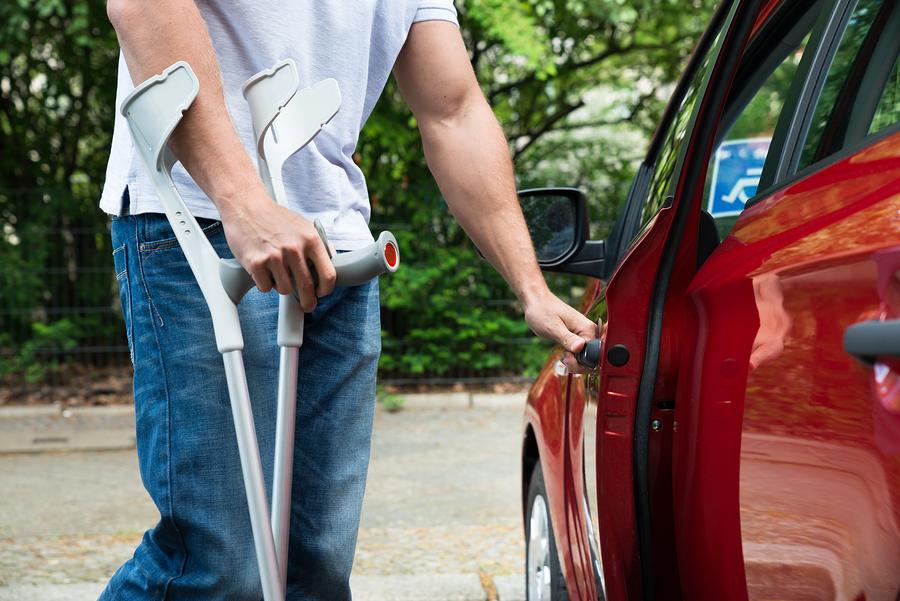
Someone is injured in a car accident every ten seconds in the United States. The majority of these accidents may not be fatal, but that does not mean that on-going injuries and associated health problems are not caused!
Even the smallest of car crashes can lead to serious injury – both physically and psychologically. Although fatal car accidents are obviously a big concern, less serious car accidents can cause ongoing physical and mental health issues.
Mental Health Impacts of Auto Accidents
Research has shown that approximately 30% of people involved in non-fatal auto accidents go on to develop a relevant phobia, depression, anxiety or a post-traumatic stress condition because of the accident. The effects of this new health concern are generally felt for at least one year after an accident.
Furthermore, it is an incorrect assumption that the more serious the accident is, the more serious the psychological effects of the incident will be. Research has also demonstrated that passengers of cars that have been involved in accidents are more likely to develop anxiety than the driver of the car. This can be connected to the lack of control that is possessed as the passenger in a vehicle.
If you have been involved in an auto accident and continue to feel anxiety or stress after a few months have passed, then it is important that you seek professional help from a therapist to process these feelings. They will likely prescribe you a combination of therapy alongside some kind of medication.
The First 72 Hours Post-Accident
The first 72 hours after you have been involved in a car crash are considered to be quite important. If you do not seek medical help during this time frame then you could unwittingly be causing long lasting damage. You could be seriously hindering your chance of recovery if you do not put your health first during this time.
During these 72 hours you should also care for yourself in other ways, such as through getting an adequate amount of rest and nourishing your body in an optimum way.
Even small actions and movements that you make during the first 72 hours after an auto accident can make any existing injuries worse. Continuing as normal means putting yourself at a heightened risk of causing further harm and it is essential that you act with caution during this time. You should certainly not be exercising or doing any heavy lifting!
Auto Accidents and Adrenaline
You may not feel as though you have experienced a significant injury simply because you do not feel as though you are in much pain. However, it is important to remember that when your body goes through an experience like this, the levels of adrenaline in your body are extremely higher than they would normally be.
This is your bodies response to what has just happened and will protect you (to a certain degree) from the effects of the accident.
Avoiding Inflammation
Combatting inflammation in the body is incredibly helpful to the recovery process. Although certain medications can help to reduce inflammation, you can also aid this process by staying hydrated and eating well. Vitamin C is a very useful component for tackling inflammation. Foods such as dark, leafy green vegetables, peppers, guava, kiwi and berries are bursting with vitamin C!
Trust Your Healthcare Professional
Paying a visit to your doctor as soon as possible after your accident is always advisable and you will then be able to determine the best route to recovery. It is common that you will need to visit an orthopedic doctor because of the nature of the injuries generally sustained during auto accidents.
The course of prescribed treatment will likely be ongoing for many months at least. It is important that you take your treatment seriously and adhere to all of the requirements as they are explained to you. Failure to do so could result in your recovery taking longer than expected, or your body not recovering as well as it otherwise would have done.
Safety First!
Although you obviously can’t always avoid accidents and uninvited injuries, you can do your best to mitigate the risks associated with driving. Things like sticking to the speed limit and always wearing your seat belt are seemingly small acts, but can actually help to limit harm if you are involved in an accident.
Sticking to the speed limit also means the impact will be less severe if you are to crash into another car or something else, such as a wall or street light.
Resources
1) http://www.webmd.com/mental-health/news/20010820/impact-of-car-accidents-can-be-long-lasting
Related Posts
Cigarettes May Inhibit Inflammation Treatments
Axial spondyloarthritis, also known as AxSpa, is a chronic…








